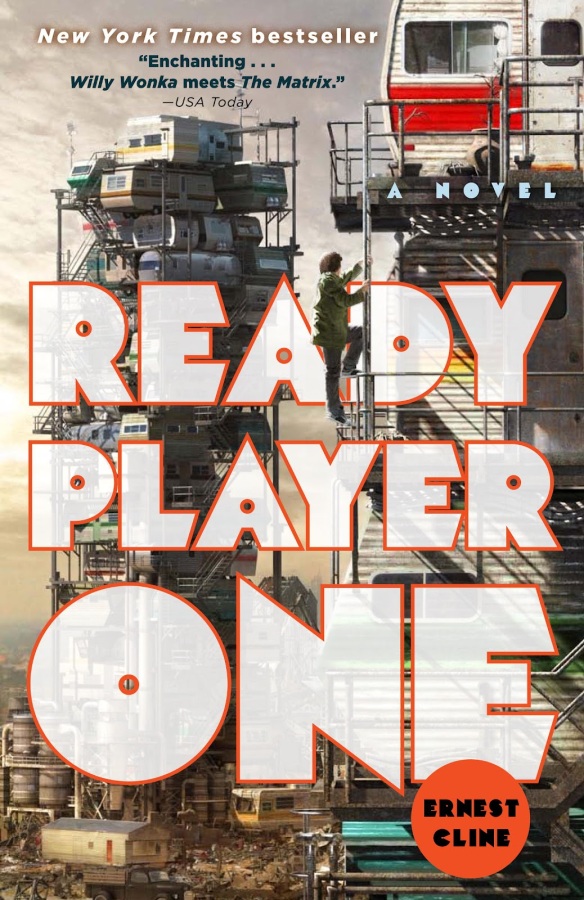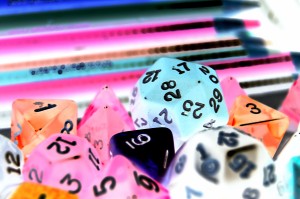I know I am a little late to the party, but I just finished the book and I wanted to give The Doom Retrospective a tiny break. It’s been a long time since I’ve done a book review and I think Ready Player One is a worthy work to break my critic’s drought.
Published in 2011 by Ernest Cline, the book has developed into sort of a geek cult sensation. Honestly, as a huge nerd that grew up in the 80’s, I felt this book was written specifically for me. It’s not hard to understand that feeling when you consider that Mr. Cline is only five years older than me. It was also his first novel, which he published at the age of 39. The bastard. My window to match his feat is rapidly closing.
As you can probably guess, I really enjoyed this book. It is set in a not-too-far off dystopian future (2044), where global warming, wars, an energy crisis, and a stumbling economy have contributed to a world that is hardly habitable. Our main character, Wade Watts, lives in a mega trailer park and spends all his time in the OASIS, a virtual reality video game that is so revolutionary that it has supplanted the real world. People shop there, fall in love there, get married there, and even go to school there. It’s creator, James Halliday, is Willy Wonka, holding a contest inside the OASIS to determine his successor after his death.
The book really strikes the proper chord of nostalgia and forward thinking. Wade is obsessed with technology and the past. Throughout the book, he goes to great lengths to avoid the real world and the present time. As the book progresses, however, he starts to realize that the outside world still does hold some value (friends! love interest!). There is a political agenda here too, aside from the aforementioned worldly ills, race and sexual orientation are mentioned in the book, but they seem sort of just tacked one, like Cline wanted to call attention without really exploring the issues. Did I mention that a completely amoral corporation is the villain? Or other hunters of the prize team up to take down said evil corporation? All the boxes are checked here.
As for the writing, most of the time I didn’t notice it, which is a pretty high compliment. For a novel that is steeped in fanboyish obsession, the story could have been laughable, but Cline’s prose gets out of the damn way and lets the story flow. It’s not Steinbeck, but the book is well written.
The real draw of the book is just how much fun Cline obviously had writing it. Any major cultural touchstone from the 70’s and 80’s is fair game. Movies, comics, Dungeons and Dragons, music, and video games. It’s all in here. And they aren’t just mentioned. There is a page of nothing but Monty Python and the Holy Grail dialogue. There are pages describing games like Zork, Black Dragon, and Tempest in detail. I owned Zork and I loved that game. So bonus points there.
Overall, nothing in Ready Player One is revolutionary. Willy Wonka. Evil corporations. Virtual reality vs. the real world. Contemporary ills that lead to dystopian future when ignored. Nerdy loner growing as a person. Every bit of this book is recognizably drawn from somewhere else, and can even be a bit tropey and clichéd, but the prose is steady and Cline’s enthusiasm jumps off the page. I don’t feel changed by the book, but I still loved it.
8/10 1UPs!
As usual, feel free to leave your thoughts and comments below. You can also send your comments to thenonicheblog@gmail.com or follow me on Twitter at John_S20. If you like what you read, subscribe!




